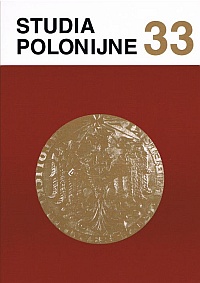A Chance or a Threat for the Local Church? Polish Immigrants in the European Union
Main Article Content
Abstract
Migration is a phenomenon that concerns about 200 million migrants. According to various estimates there are about 15-22 million Polish emigrants in the world. This is more or less 10% of the total of migrants in the world. Poles have taken residence, among others, in: Germany – about 2 million; France – 750 thousand; Lithuania – 250 thousand; Ireland – 220 thousand, the Netherlands – 180 thousand; Czech Republic – 120 thousand; Italy – 110 thousand; Belgium – 100 thousand, Sweden – 100 thousand; Spain – 100 thousand; Austria – 70 thousand; Latvia – 50 thousand. Immigration changes the denominational structure of the countries it concerns.
The influence of Polish language pastorate differs depending on the country of residence, that is, it is different in countries where the structures of Polish pastorate are “old”, tested and well established, like Germany or France, from where they have to be formed because of the waves of Poles coming to seek a seasonal or permanent job, or coming as tourists, e.g. in Ireland or Spain; and still different where Poles do not feel like emigrants but as residents living there for ages, e.g. in the territories of the former Soviet Union (Lithuania, Latvia and Estonia). This means that different styles of pastorate have to be taken into consideration, and hence various ethnic elements, special methods, customs and practices have to be allowed that are typical of Polish culture and religiousness.
Making the decision concerning migration may be result of a variety of premises, both positive and negative. Depending on what motivations are the dominant ones the consequences for the family may be different. They are experienced mainly by the children, and they depend, among others, on the condition of the family, on the time that migration lasts, on the age of the child/children, and on who is the migrating person and who has the custody of the children. In 2009 the Fundacja Prawo Europejskie estimated that because of economic emigration abroad in 110 thousand Polish families children are raised at least without one parent. Moreover, experiencing temporariness by the migrant undermines the view of the world he has, makes his choices of norms and goals in his life relative, and undermines the indissolubility of his marriage. It also requires a proper balance between maintaining his own identity and acknowledging the identity of others.

